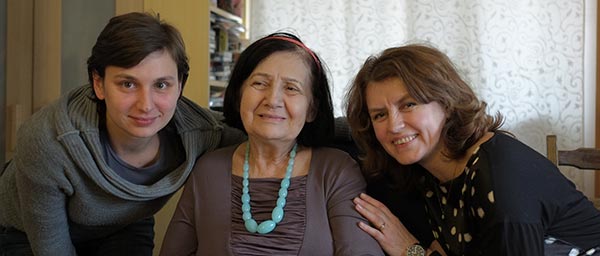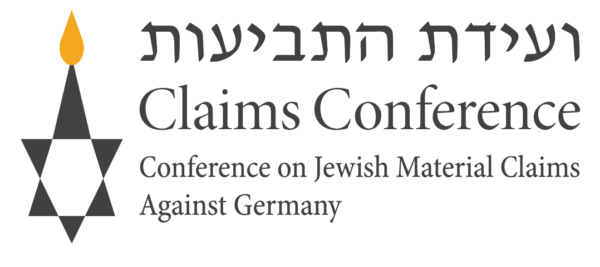Katarzyna Meloch-Jackl

Katarzyna receives compensation from the Central & Eastern European Fund, and also received a payment from the Program for Former Slave and Forced Laborers. Now 81 years old, she suffers from rheumatism and problems with her circulatory system. She also requires dental treatment. The 30 hours of homecare help each month “makes it easier to live, and to write,” Katarzyna says.
Katarzyna Meloch-Jackl of Warsaw says she has to live until 90 because she has so much to write about Jewish history and the Shoah. The homecare help she receives from Poland’s Central Jewish Welfare Commission, through funding from the Claims Conference, enables her to have strength to write and record testimonies from survivors like herself.
Born in May 1932, Katarzyna was a young schoolgirl in Warsaw when the Germans invaded Poland in September 1939. Her parents took her and fled to Bialystok, where her father, a historian, was drafted into the Polish Army. Her mother taught the little girl to memorize her uncle’s address in the Warsaw Ghetto, to use as a safe-house. In June 1941, when Germany attacked the Soviet Union, Katarzyna’s mother was taken away by the Nazis and the girl never saw her again. Katarzyna was taken to an orphanage in the Bialystok ghetto. After about six months, she was able to contact her uncle and grandmother in Warsaw, who smuggled the girl into the ghetto. It was far different from Bialystok, Katarzyna wrote in her memoirs; this was the first time she saw dead bodies, she wrote. She was sent to a secret school, where she learned to read.
During one roundup of Jews in the ghetto, her grandmother asked the Nazis to be taken in place of the girl, saving Katarzyna’s life. She ran to safety in a nearby pharmacy, where a nurse had an idea to save her. The girl was smuggled out of Warsaw to an orphanage, and then to the Sisters Servants of the Most Holy Virgin Mary convent in Turkowice. Several nuns at the convent, including the famous Irena Sendler, saved many Jewish children, including Katarzyna, from certain death. Katarzyna was given false identity papers and until the end of the war was known as Irena Dabrowska. After the war, Katarzyna’s aunt came for her at the convent, and then they returned to Warsaw, but to this day she still does not discuss what happened to her in the ghetto there. Katarzyna used her false name until 1968.
Katarzyna, a member of the Association of Children of the Holocaust in Poland, is the editor of four books of survivors’ testimonies called “Children of the Holocaust Speak.” “The ability to write about Jewish history gives me a lot of satisfaction and brings my father back to life,” Katarzyna says.
She has a daughter and two adult grandchildren. But her daughter has never worked, due to mental illness and social issues. Katarzyna herself brought up her grandchildren and to this day financially provides for all of them.
Katarzyna receives compensation from the Central & Eastern European Fund, and also received a payment from the Program for Former Slave and Forced Laborers. Now 81 years old, she suffers from rheumatism and problems with her circulatory system. She also requires dental treatment. The 30 hours of homecare help each month “makes it easier to live, and to write,” Katarzyna says.

